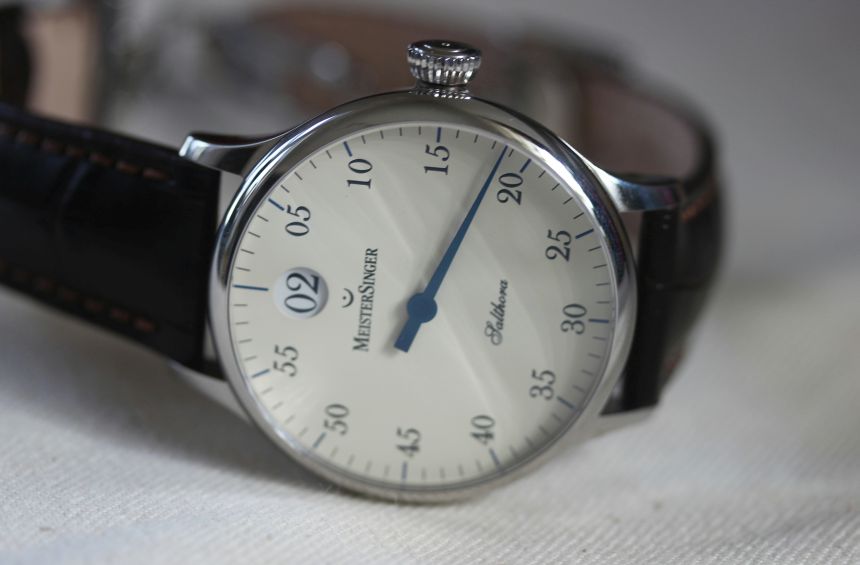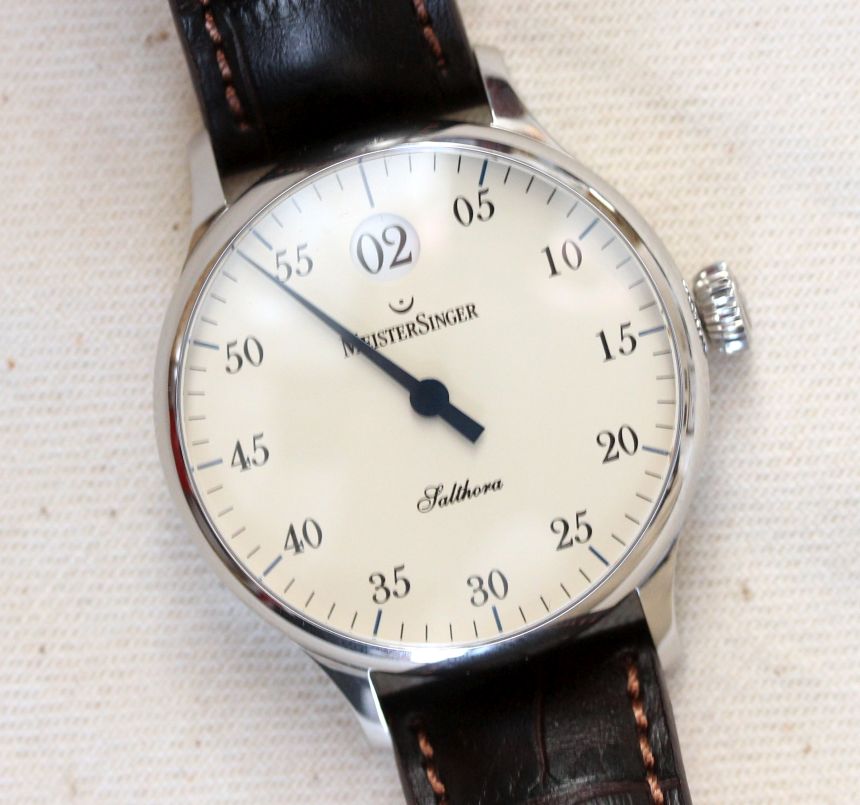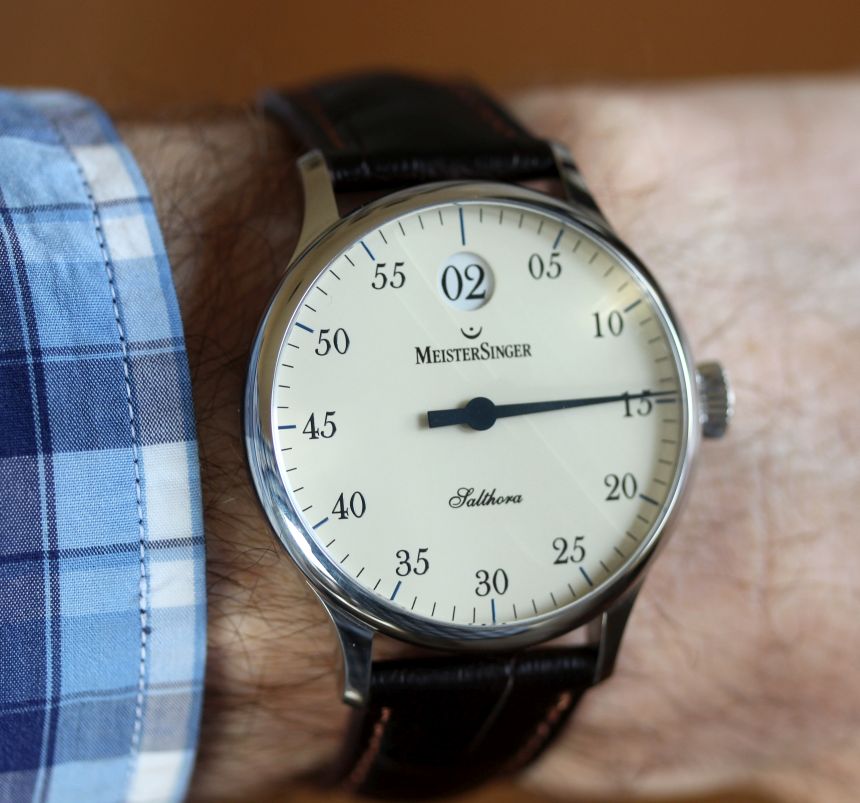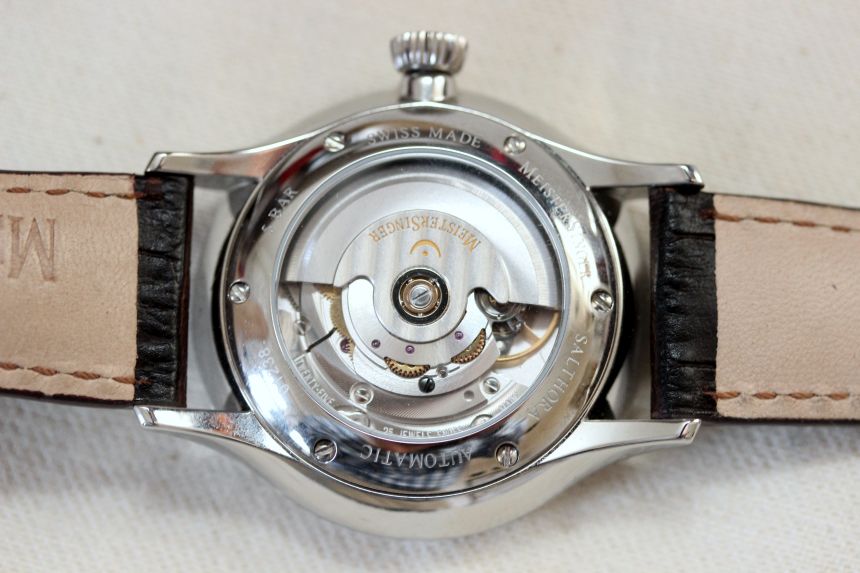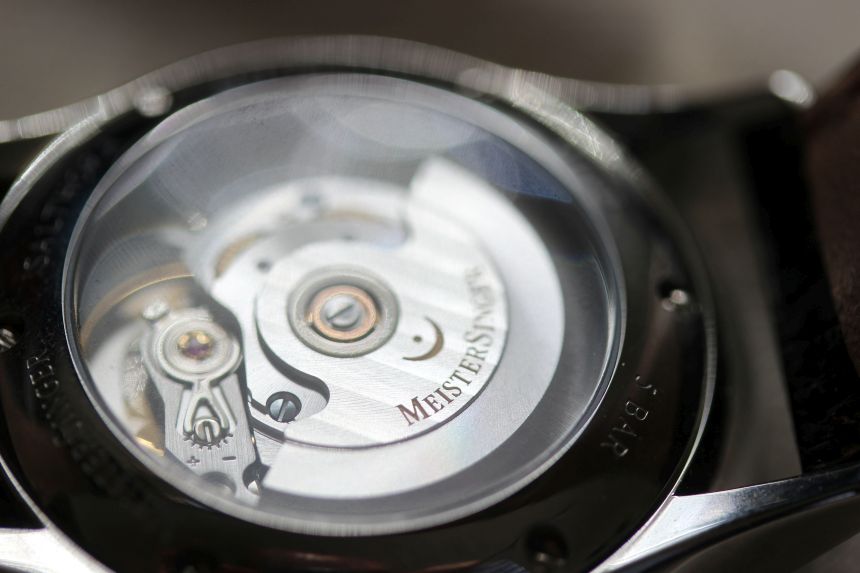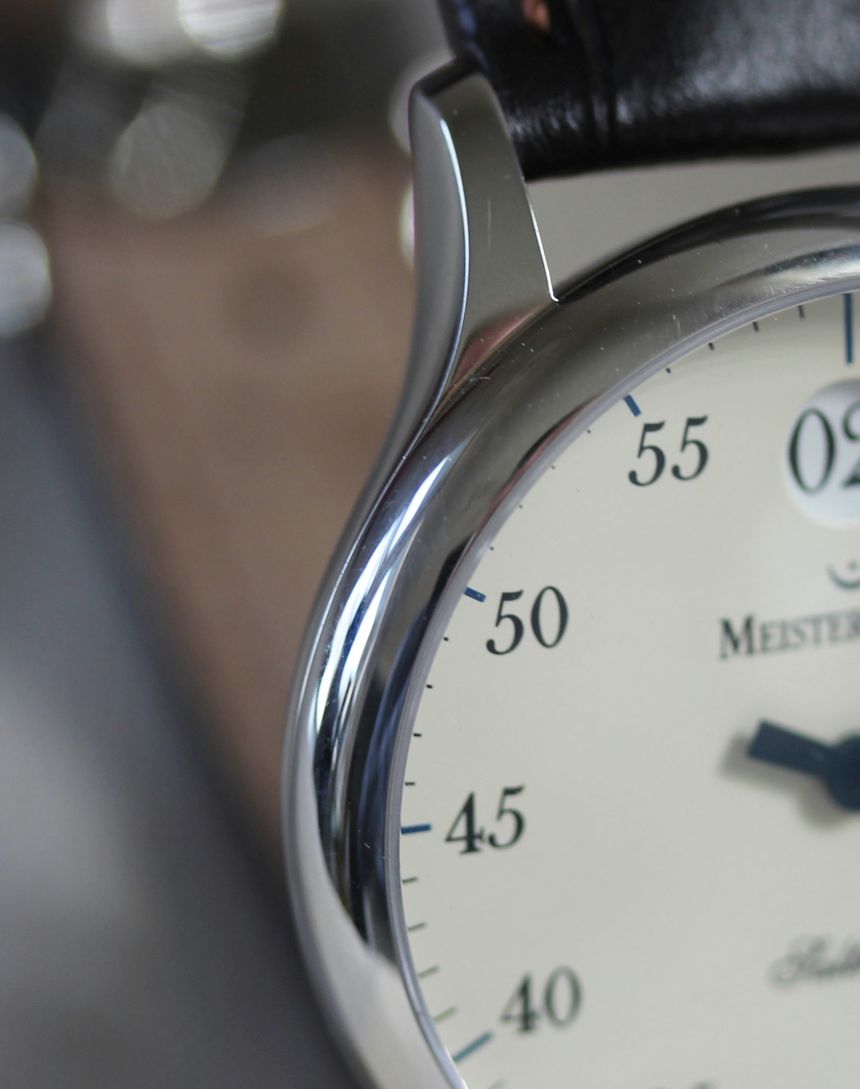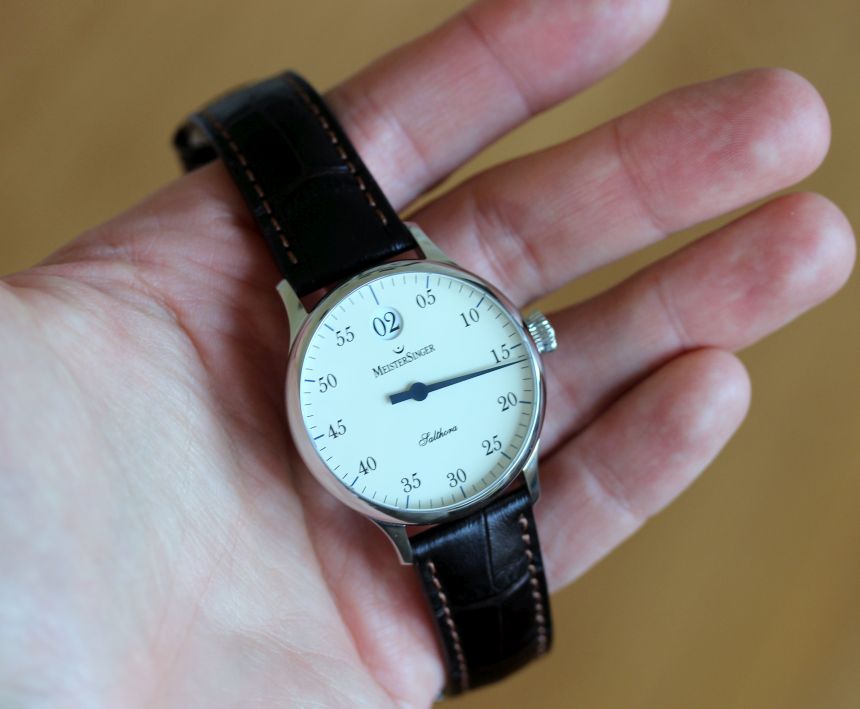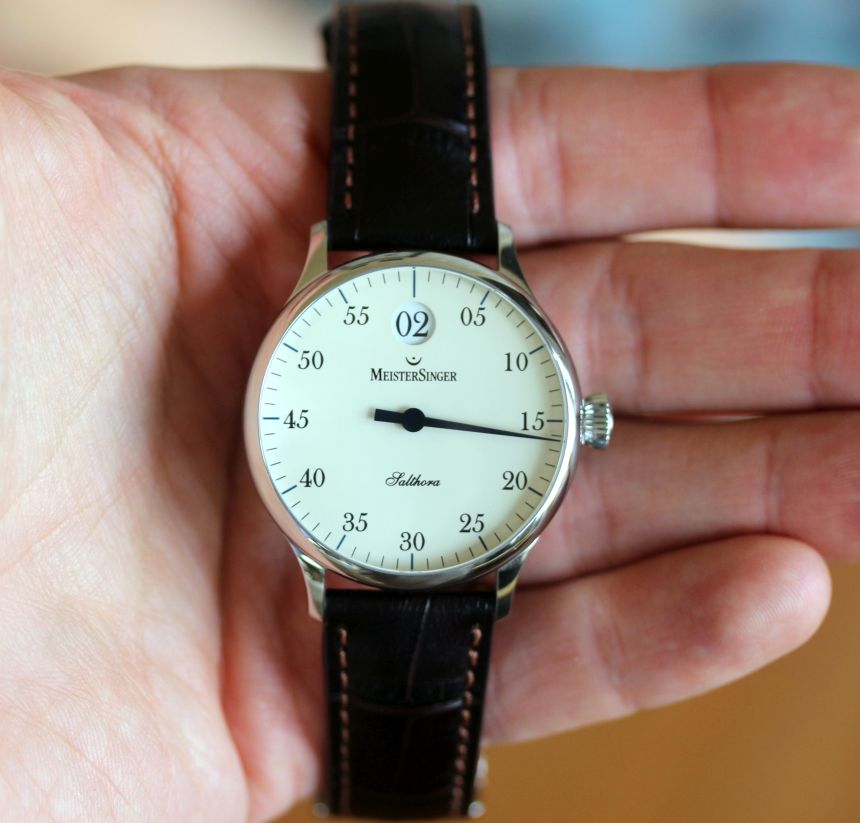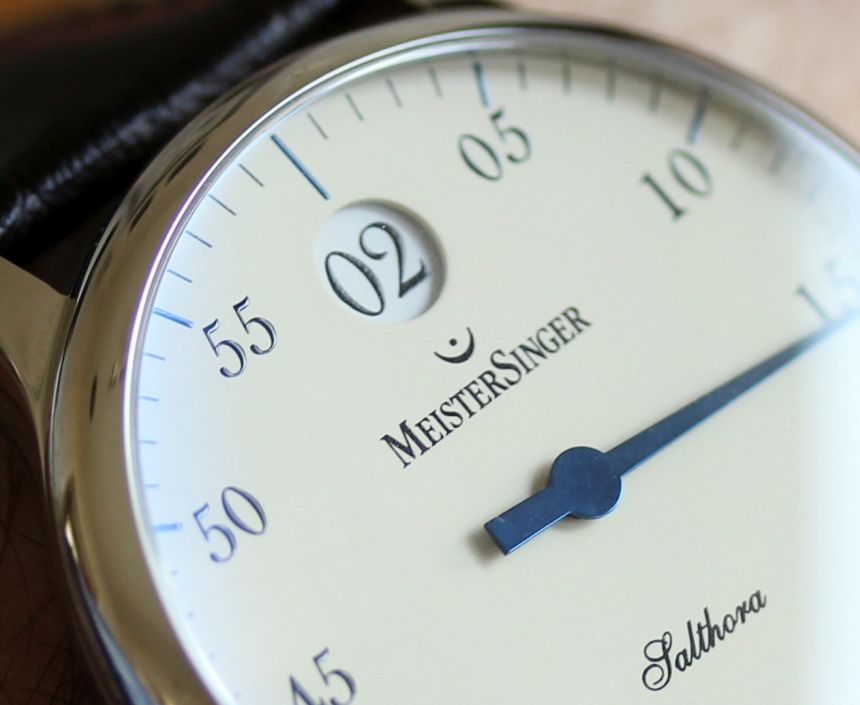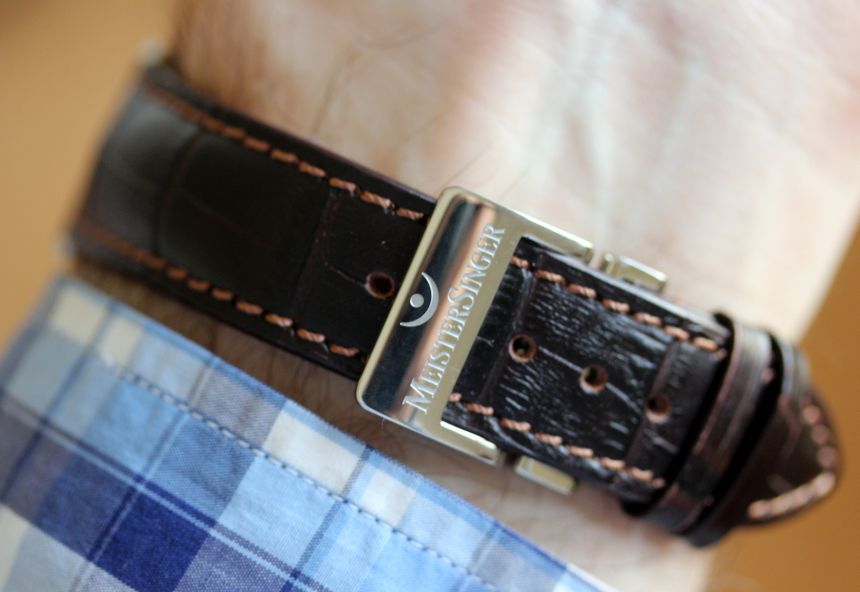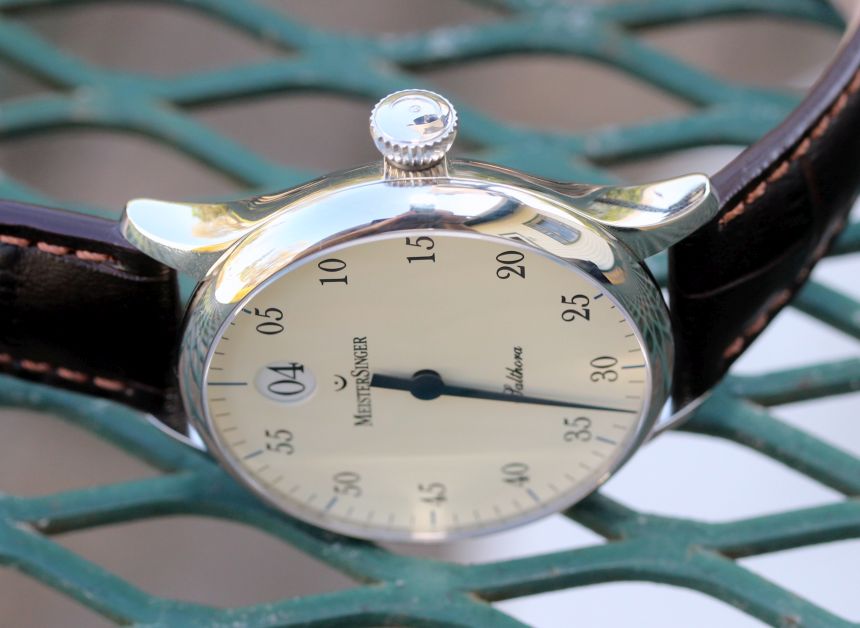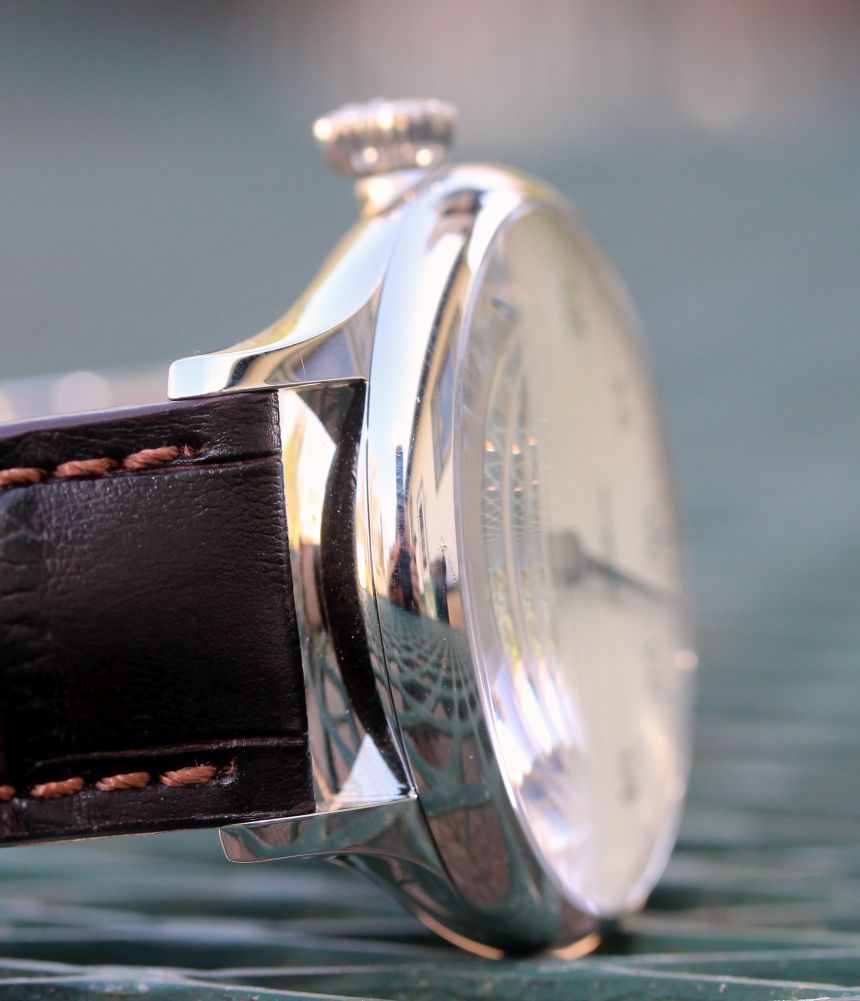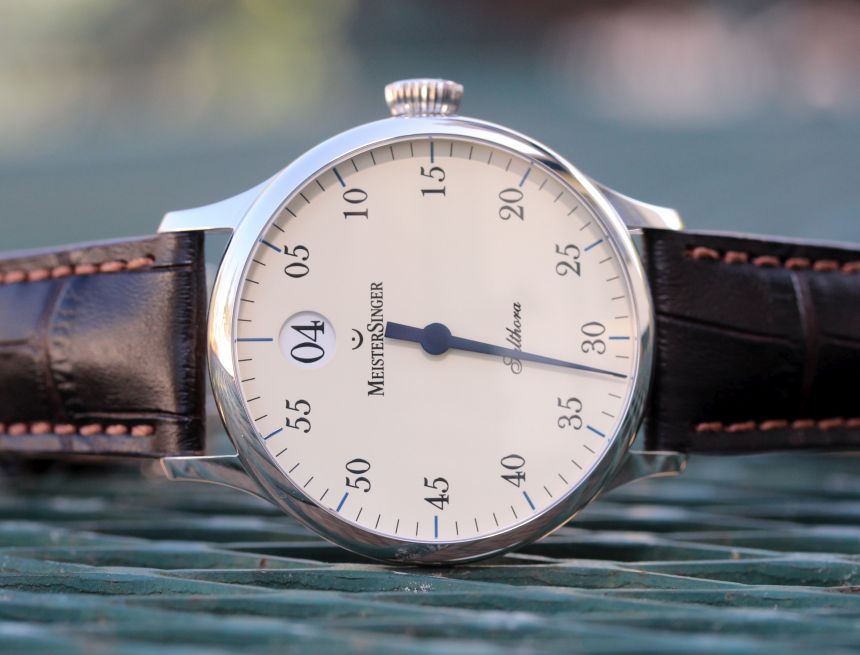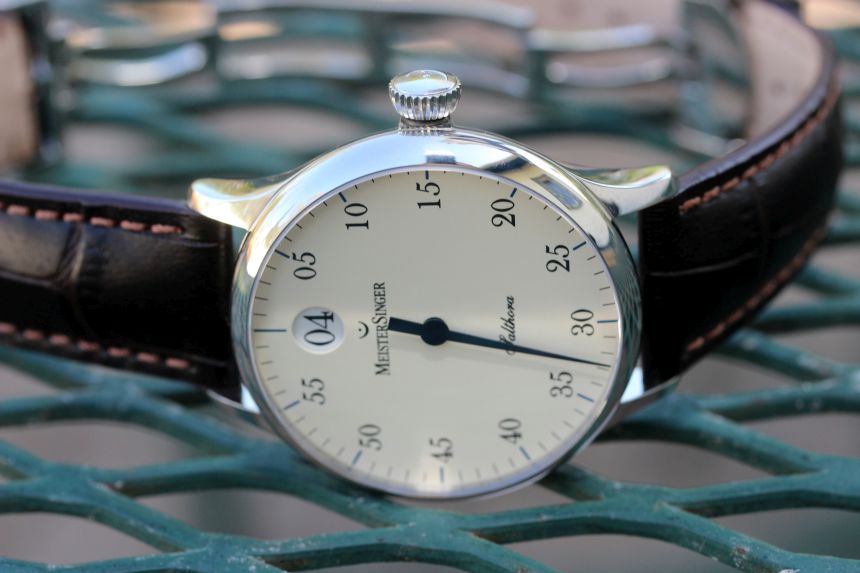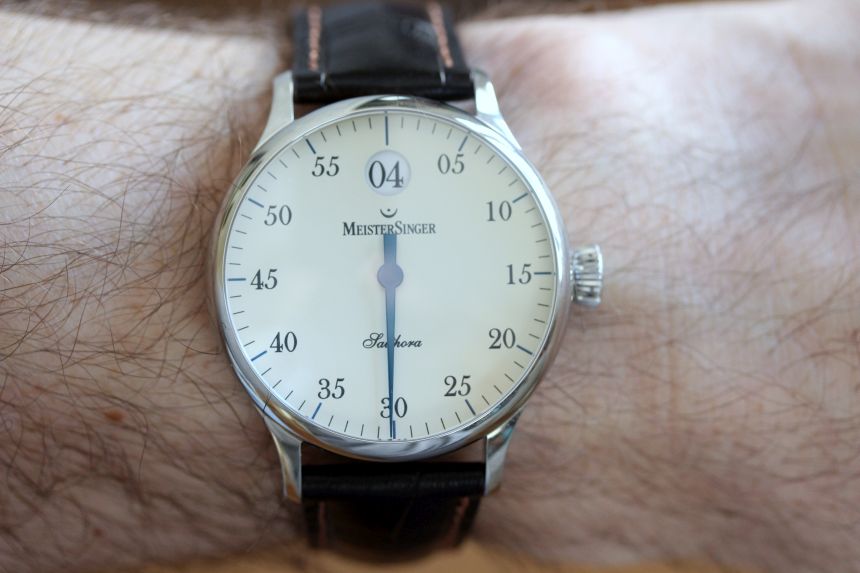
MeisterSinger, I think it is safe to say, has a very singular approach to their watch designs. They have carved a niche out for themselves with their single-handed watches, offering tidy German designs with more than a dash of an “island-time” mentality. That is not to say that the watches are not accurate, because they are, given the Swiss movements inside. No, instead, with the 15-minute increments being as close as you can reliably tell the time on a traditional single-hand watch, you are forced into a more relaxed view of what time it is. Or perhaps that’s just me, the “feeling forced” bit. I rather like to know the exact time, which is why something like the MeisterSinger Salthora is a good fit.
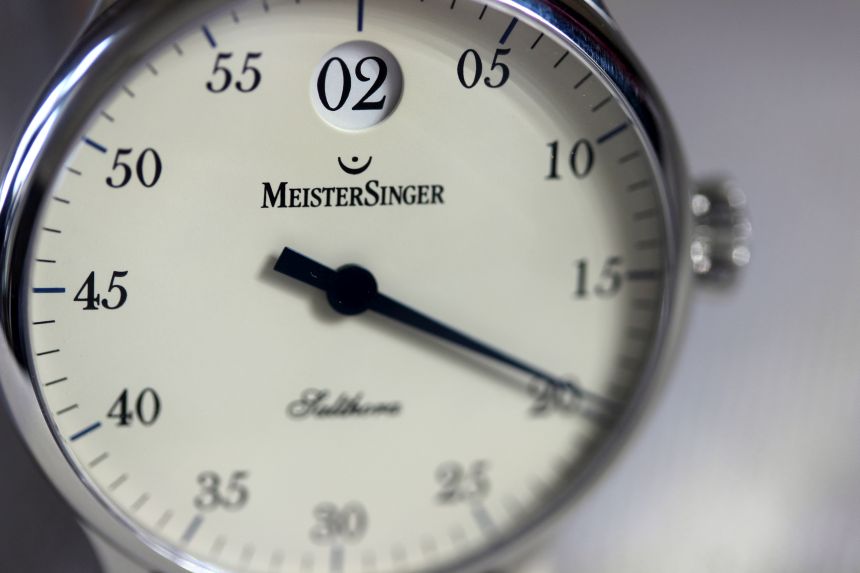
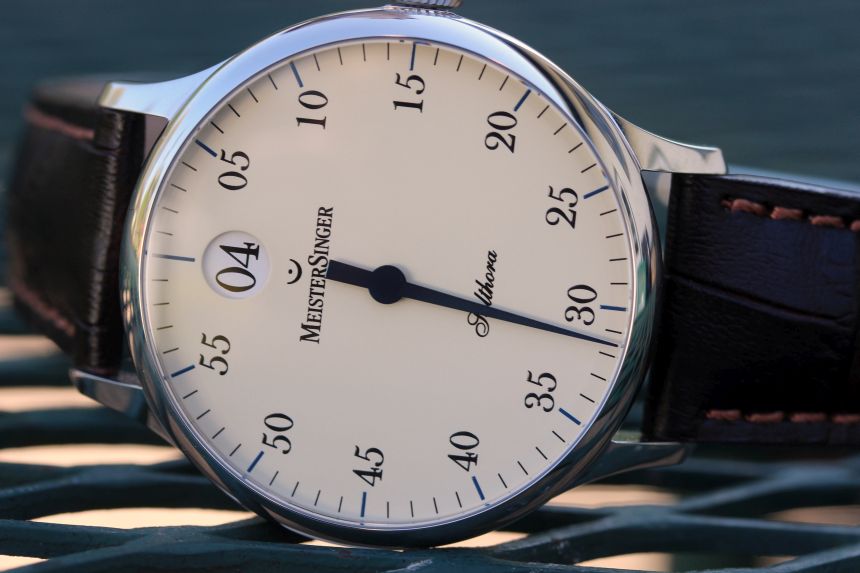
That is because the MeisterSinger Salthora, while still a single-hand design, gives you a more traditional take on tracking time. This is accomplished by means of a jumping hour disc (at the 12 o’clock position), leaving the single hand to then track the minutes. For those who prefer a “pure” single-hand watch, this won’t be of appeal, simply because you lose some of that lackadaisical charm. For folks like me, however, this allows you to get that unique design while still maintaining functionality.
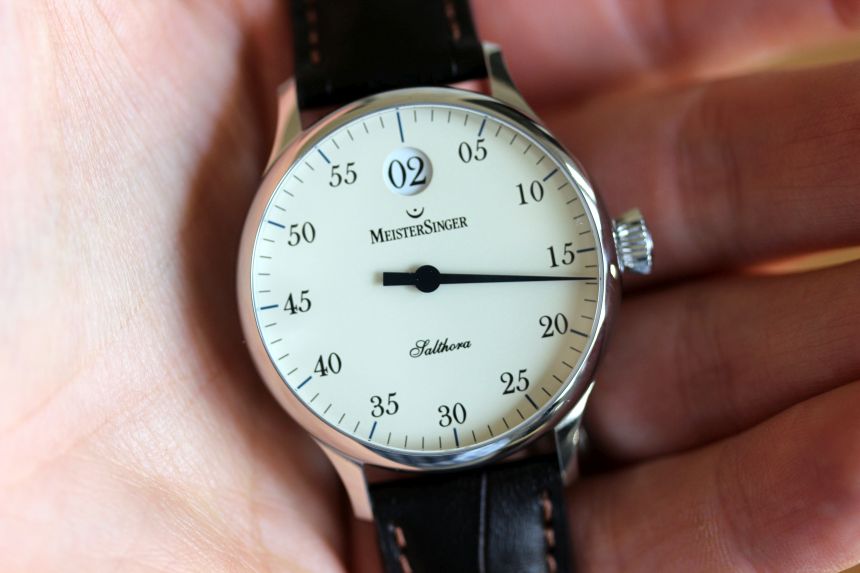
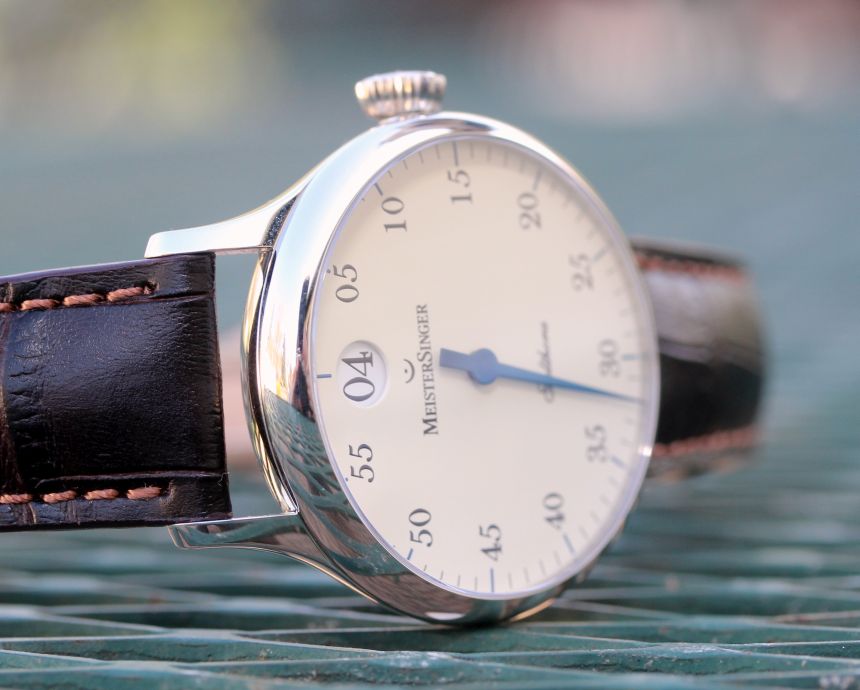
And really, that is the reason I find myself liking the MeisterSinger Salthora – it maintains its usability for how I rely on a watch in daily situations. Especially when I’m in the office, knowing the time more precisely keeps me on schedule. Sure, there are all manner of clocks around that can give me the exact time, but why not just let the watch do what it’s been steadily improved to be able to do? I mean, with a ETA 2828-2 or SW200-1 movement tucked in the case, why limit yourself to 15-minute precision?
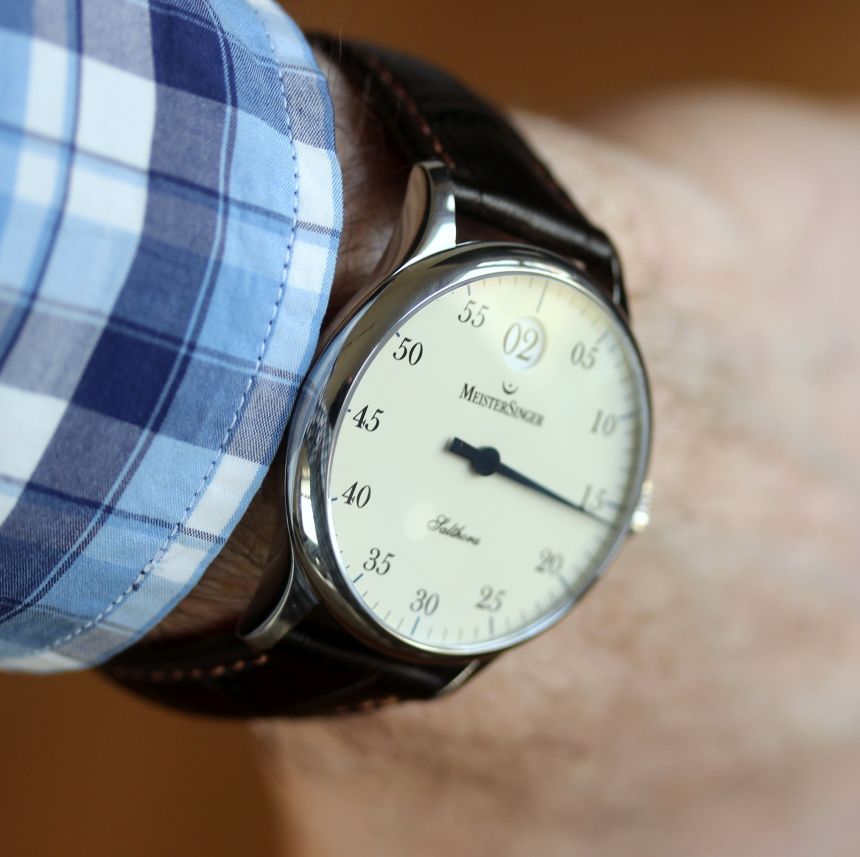
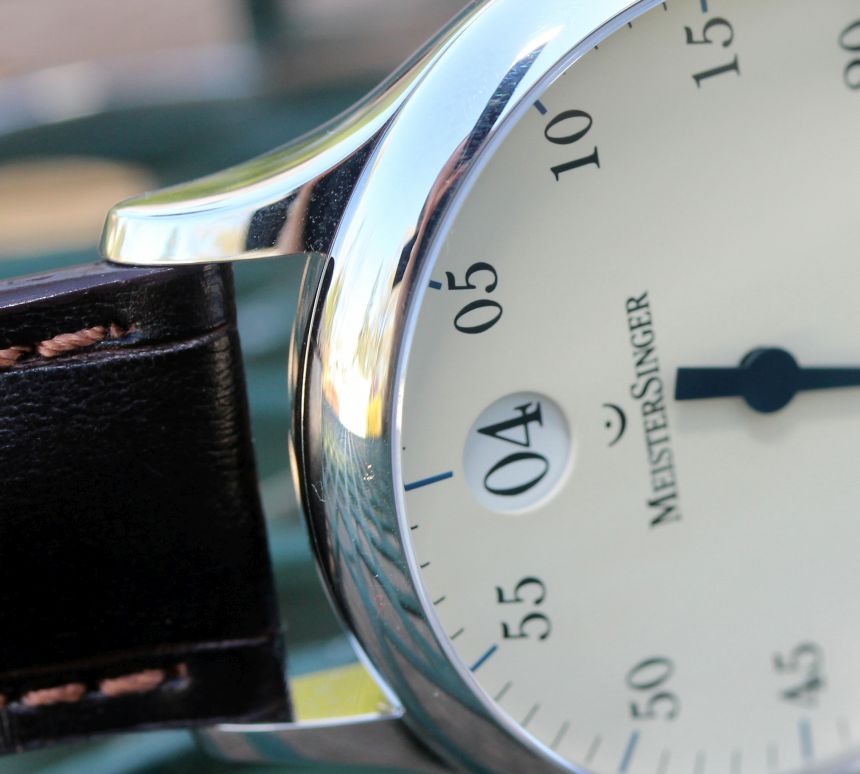
The other benefit of the jump hour on the MeisterSinger Salthora, aside from its relative rarity in today’s watches, is of an audible nature. As I noted in my original writeup back in 2014, there is a click when the hour changes. While I have only managed to notice this when setting the watch to get it ready to wear, it is conceivable you would hear this audible notification kicking off if you were in a quiet enough room. Is it a feature? No, not really, but it’s another one of those quirks that owners can get to appreciate.
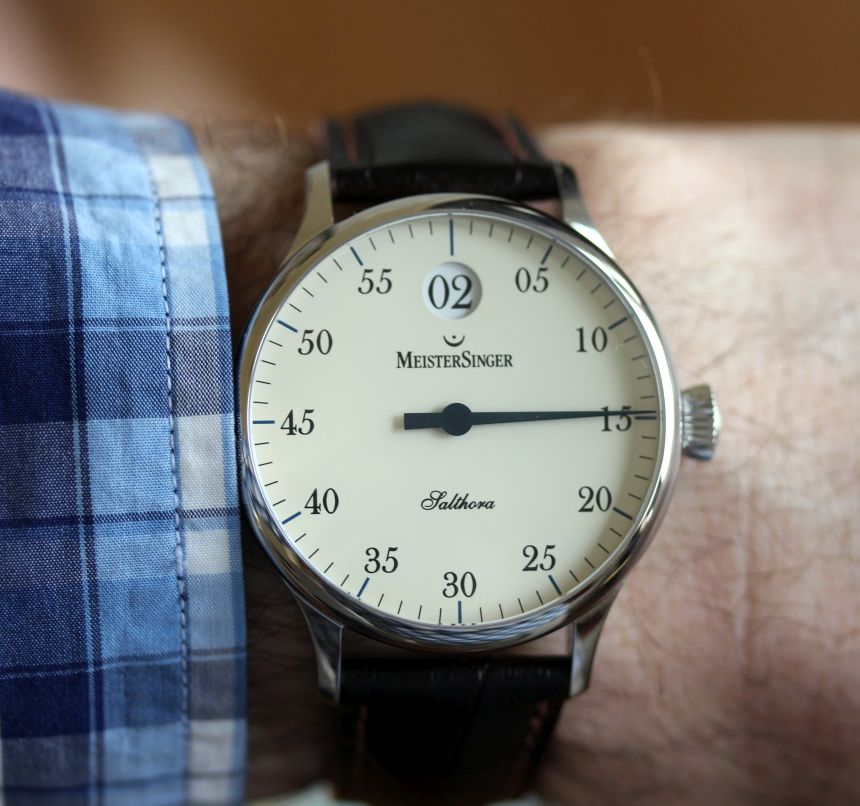
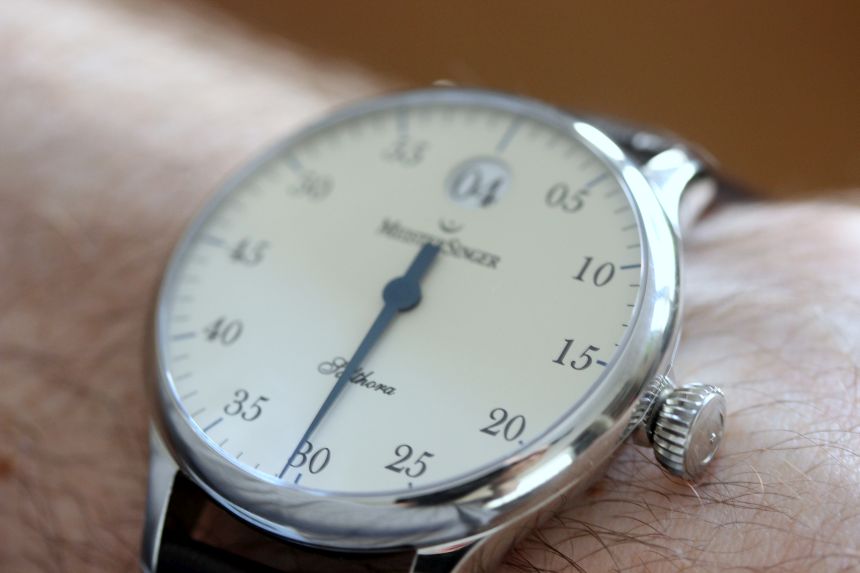
On the wrist, the 40mm case of the MeisterSinger Salthora wears quite compactly. This is partly due to its dimension, of course, but is also influenced in large part by how minimal the bezel is. With that slender ribbon of steel surrounding the dial, you really focus more on the dial itself, and sort of pick that up as its size. This undersized feeling is also helped along by the fact that the case tapers as it goes from the front to the back. Along with reducing weight (the watch is 84g), it makes for a smaller footprint against your wrist. It also makes for an odd look to the crown. While the crown clicks into place against a protrusion on the case, it almost looks like you have the crown stem exposed (you don’t, of course).
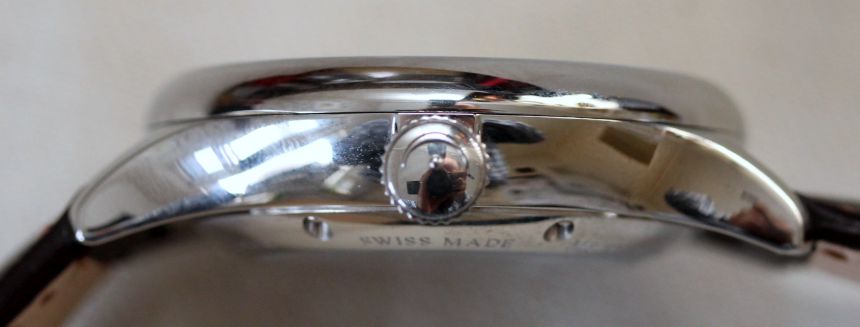
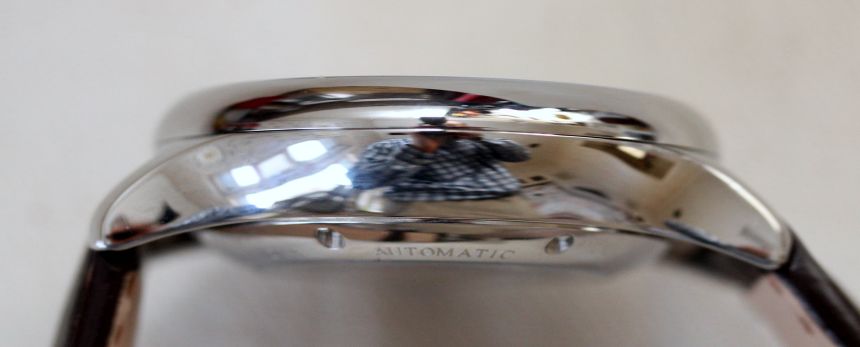
The stem hooks up to the movement, of course, and it’s how you wind the mainspring and adjust the time. It is of note (but not really a surprise) that there is no “quick set” of the hour disc. There is only a single position to pull the crown out to, and when in position one (with position zero being winding) you set the minute hand spinning around the dial. Every time it passes the 12 o’clock position, the hour disc advances to the next hour with a click. This may sound tedious, but you’re thinking in terms of date displays that do not have a quick set (which, fortunately, is rarer these days). The gearing between the crown and the hand is such that you can spin the hand rather quickly, making setting the time after inactivity a simple thing to do.
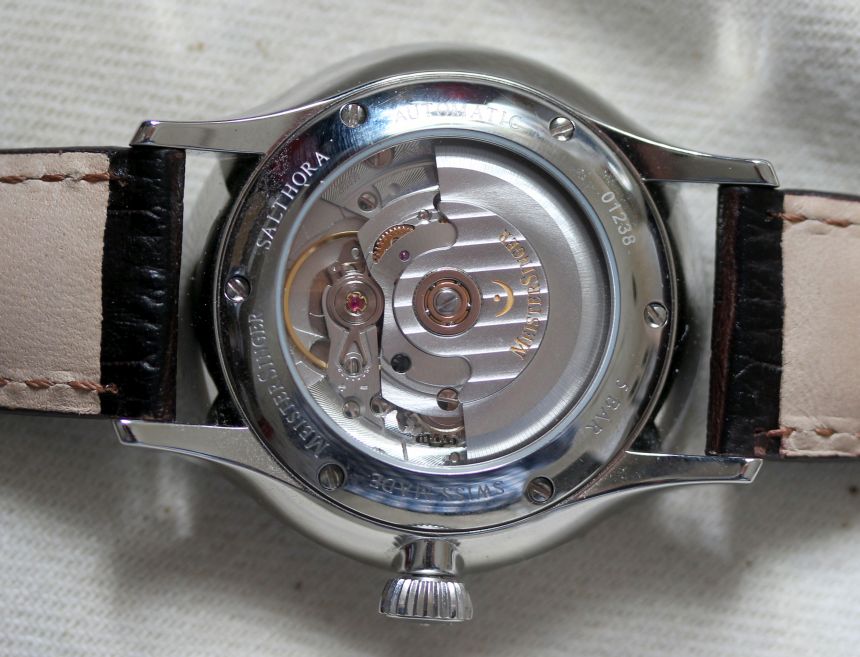
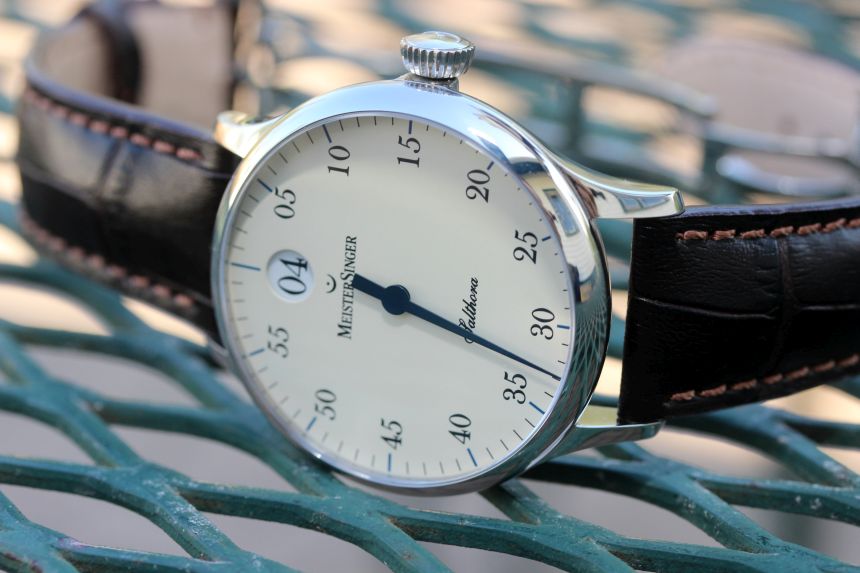
There are four different color schemes of the MeisterSinger Salthora: white, anthracite, blue, or ivory, as we’ve reviewed here. While the blue dial is my favorite, the ivory is a close second, nicely set off by the blued hand. Unfortunately, the hour disc is not color-matched to the ivory dial (or any of the dials, other than the white one). Sure, the leap from ivory to white is not a huge one, but it would give just that extra bit of refinement to have them match. Or, why not go bolder and have it be a completely different (or inverted) color. Just a thought, and really, in regular wear, the color difference is not one that I particularly noticed or was bothered by.
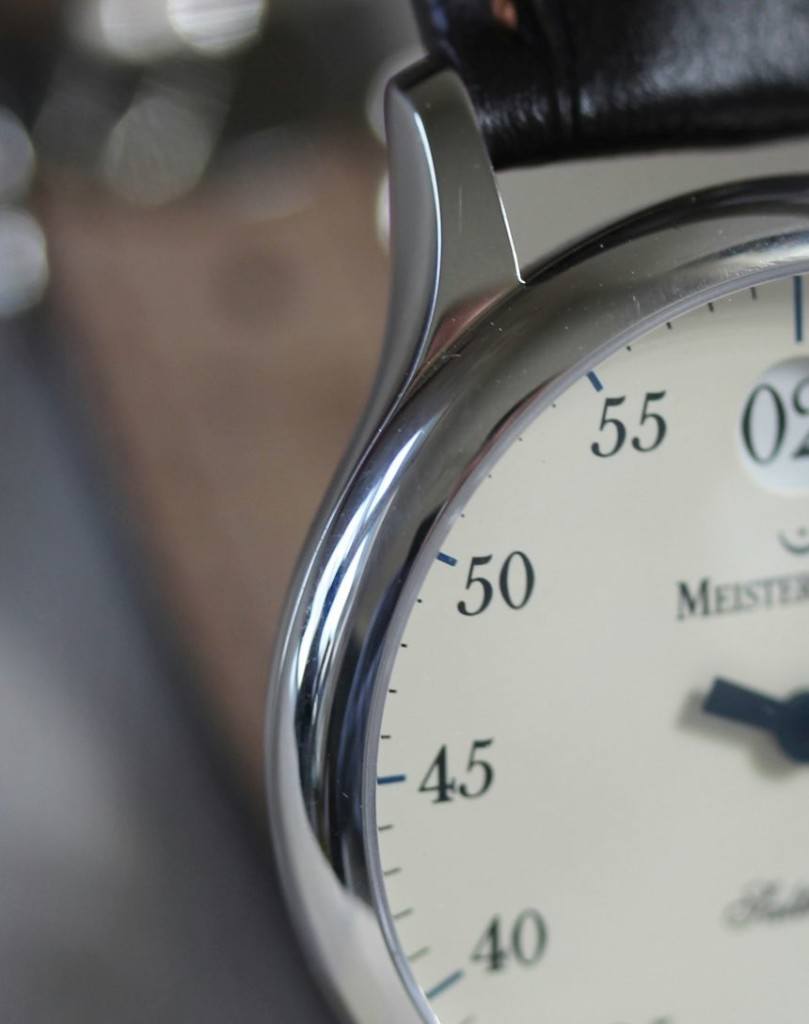
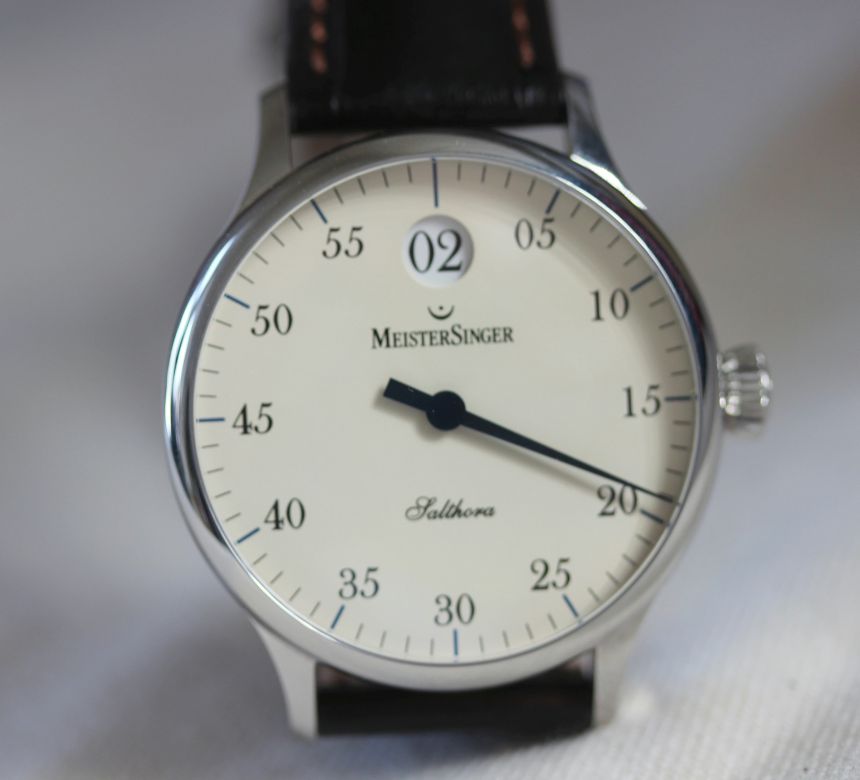
On the brown calfskin strap, I found the MeisterSinger Salthora to be an amiable daily companion, keeping me on time while still giving that feel of the essence of the MeisterSinger design language. The MeisterSinger Salthora is currently available at a price of $3,525, or you could opt for the slightly larger MeisterSinger Salthora Meta, which comes in a 43mm case and runs $3,675. Whichever you might end up with, I feel that the MeisterSinger Salthora is a good compromise for those who like the look of a single-handed watch, but simply do not want to give up accuracy in reading the time. meistersinger.net
Necessary Data
>Brand: MeisterSinger
>Model: Salthora
>Price: $3,525
>Would reviewer personally wear it: Yes, I certainly would get a watch like this in the rotation (though, I might opt for the blue dial on a blue strap)
>Friend we’d recommend it to first: Basically, someone who views watches like I do – looking for accurate reads, but not afraid of mixing up the standard hand configuration
>Worst characteristic of watch: I’m going to say it’s how the crown can look like it’s standing off from the case even when clicked into the zero position
>Best characteristic of watch: Giving the single-handed watch feel while still offering you an accurate read on the time
Tech Specs from MeisterSinger
- Case
- Stainless steel with 6-screwed exhibition back
- Diameter: 40 mm
- Height: 13.3 mm
- Domed sapphire glass
- WR: 5 bar
- Movement
- ETA 2828-2 or Sellita SW200-1 (movements identical in construction) with MeisterSinger module for the “jumping hour”
- Automatic
- 26 jewels
- 28,800 semioscillations per hour (4 Hz)
- Incablock antishock system
- 38hr power reserve

